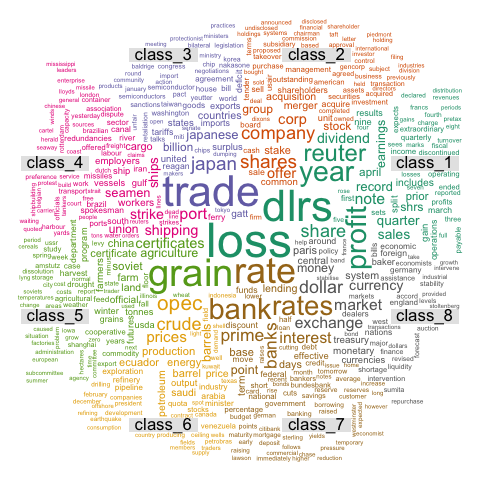Data Cleaning Packages
Stringr Package for R:
Tidyverse Package for R:
Quanteda package for R:
koRpus Package for R:
Spacyr Package for R:
Tidytext Package for R:
Tokenizer Package for R:
Topic Modeling Packages
Text2vec Package for R:
lda Package for R:
STM Package for R:
Topicmodels Package for R:
MALLET Package for R:
Sentiment Analysis Packages
SentimentAnalysis package for R:
cleanNLP Package for R:
Other Useful Packages
TM Package for R:
LSAfun Package for R:
RWeka Package for R:
tsne Package for R:
Wordcloud Package for R:

Source: Text mining and wordcloud with R (https://r-graph-gallery.com/102-text-mining-and-wordcloud.html)
Content on this page was collected by Rachel Liu, an Assistant for Research Data and Digital Scholarship Text and Data Mining. Rachel is currently a graduate student majoring in Learning Sciences and Technologies.
